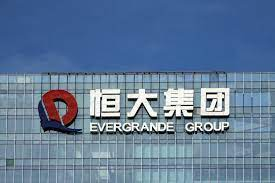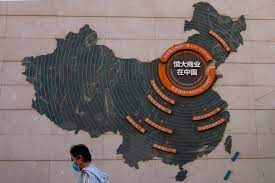Personnel from the finance unit of the real estate company Evergrande have been detained as Chinese authorities’ participation in the continuing Evergrande problem has increased. The detentions were announced by the Shenzhen police in a social media statement on September 16 evening, but little other information was given.
The arrests take place in the midst of severe financial instability. For its wealth management products, the struggling company was unable to honour payments of 40 billion yuan ($5.6 billion) in 2022. This sparked widespread protests and increased Beijing’s attention because, according to Bloomberg, the company had raised money from over 70,000 investors, including its own staff. The once attractive firm has been reduced to shell of itself.
Property crisis in China
The property crisis in China is a complex issue with a variety of contributing factors. The Chinese property sector is heavily indebted, with developers having borrowed heavily to finance their projects. This debt has become increasingly unsustainable in recent years, as the Chinese economy has slowed and property prices have increased tremendously .
The Chinese government has introduced a number of regulations in recent years aimed at curbing excessive debt in the property sector and reducing the risk of a financial crisis. These regulations have made it more difficult for developers to borrow money and have also required them to reduce their leverage ratios.
The Chinese economy has also slowed in recent years, and this has led to a decline in demand for new homes. This has further hurt developers’ bottom lines and made it more difficult for them to repay their debts
.
The property crisis in China is a major concern for the Chinese government, as it has the potential to destabilise the economy and lead to social unrest. The government has taken a number of steps to try to address the crisis, including providing financial support to developers and relaxing some regulations.
Evergrande crisis
Evergrande’s problems began in 2021, when the Chinese government introduced new regulations aimed at curbing excessive debt in the real estate sector. These regulations made it more difficult for developers to borrow money, and they also required them to reduce their leverage ratios.
The company was unable to raise new funds, and it began to default on its debts in late 2021. This led to a wave of panic selling among Evergrande’s bond holders and creditors.
In addition to the government regulations, Evergrande’s downfall was also exacerbated by a slowdown in the Chinese economy. Evergrande’s downfall has had a significant impact on the Chinese economy. The company has over 200,000 employees, and it has hundreds of suppliers and subcontractors. The company’s bankruptcy could lead to job losses and economic hardship throughout China.
China Evergrande Group, once the country’s second-largest property developer, is now on the brink of bankruptcy. The company’s downfall is a result of a number of factors, including excessive borrowing, government regulations, and a slowdown in the Chinese economy as we have seen in the above paragraph .
Conclusion
The Evergrande crisis is a reminder of the risks associated with China’s real estate sector. The sector is heavily indebted, and it is vulnerable to a downturn in the Chinese economy. If Evergrande does go bankrupt, it could have a significant impact on the Chinese economy and the global financial system.
The government is taking various measures. However, it is unclear whether these measures will be enough to prevent a hard landing for the property sector Evergrande was one of the richest companies in China but has faced several losses in the past years . This is the latest ordeal that the financially stricken company is set to face .

(Souce: Reuters)













